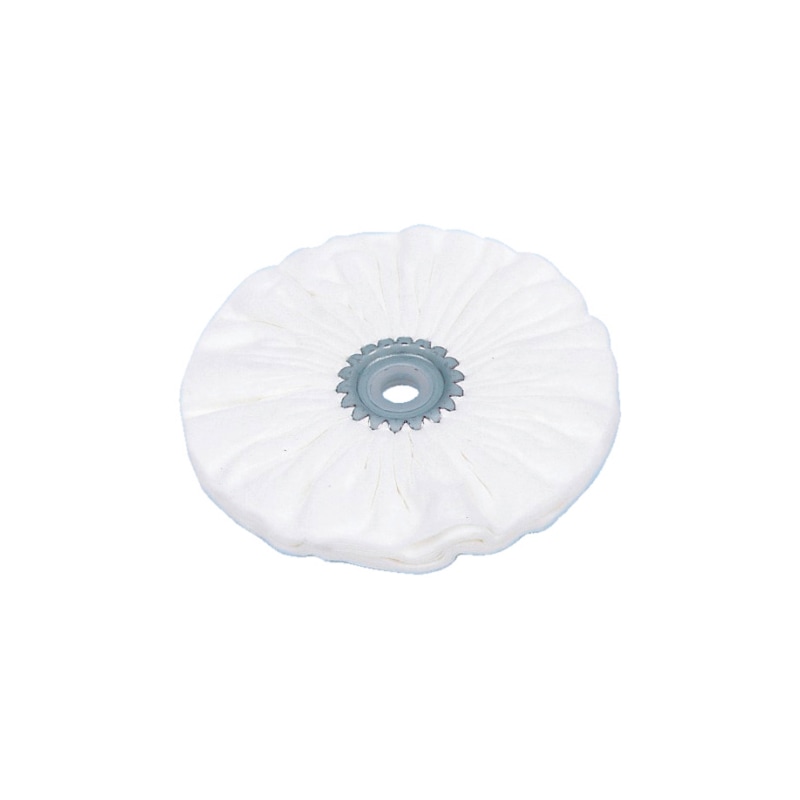For detailed information, other images and documents, please select individual articles from the following table.
Register now and access more than 15,000 products
Variants
Register now and access more than 15,000 products
Call customer service: +44 03300 555 444
Prices for customers after login
- Up to three times higher material removal power with shorter processing times
- Lower coating weight for easier handling
- Less contact pressure necessary, resulting in less fatigue
- Cost savings due to markedly lower paste consumption compared with conventional cloth discs
- Streak-free working due to the continuously changing surface structure and the piled folding
- The polishing rings are made of a purely mechanically bonded, innovative and flexible matted fleece specially developed for high-gloss polishing
- 10-ply
Apply the paste with the machine running!
For high-gloss polishing or buffing of almost all polishable materials in conjunction with buffing paste
Materials to be processed: Steel, stainless steel, non-ferrous metals and plastic parts and coatings
The better the pre-sanding, the simpler and shorter the effort required for polishing. Metals should be pre-sanded with 280 or 320 grain abrasive cloth.
Every work step should be crosswise or diagonal to the previous one.
Important: If the individual work steps are not carried out carefully, flaws in the surface become even more obvious during buffing.
A separate set of polishing rings should be used for each paste. This prevents mixing of different pastes and impairment of the result.
Clean clogged polishing rings by gently pressing with a wire brush.
Remove polishing residues on the surface with brake cleaner.
The application recommendations have a general character depending on how good the initial surface is or how high the requirements for the final surface are.
Recommended working speed: approximately 25 m/s. (corresponds to stages 4–6 for PM 200-E).
The correct procedure and speed must be determined on a case-by-case basis.
Perform preliminary testing or conduct your own tests!
Select RAL-colour code
!! NOTE: On-screen visualisation of the colour differs from real colour shade!!







